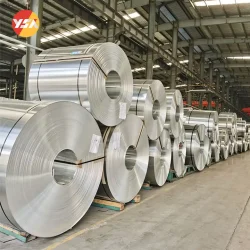What Is Marine Grade Aluminum
Marine grade aluminum is a type of aluminum used for boats. Aluminum marien has superior features than typical steel, such as low density, high strength, and corrosion resistance. It is usually made of an aluminum alloy that is appropriate for the ship’s operational climate. 5000 series aluminum, 6000 series aluminum, and 7000 series aluminum are some examples of regularly used aluminum marine alloys. These alloys are appropriate for a variety of ship types, including swift patrol boats, yachts, ship bottom plates, and so on.
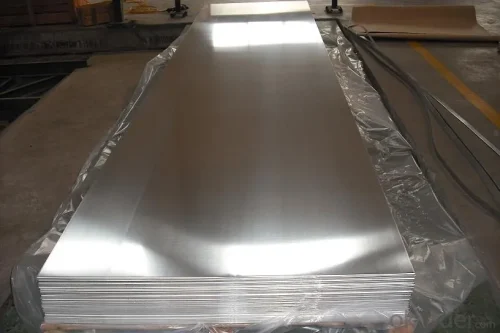
The main difference between marine grade aluminum and regular aluminum is the alloy composition. Aluminum plates marine usually contain higher alloying elements such as magnesium and manganese, which make aluminum marine more corrosion-resistant and stronger than regular aluminum sheets. In order to further enhance the corrosion resistance of marine aluminum, some customers usually perform some special surface treatments such as coating or anodizing. Therefore, the price of marine aluminum plates will be higher than that of regular aluminum.
Aluminum Alloy for Boat Development History
In the 1930s
6061-T6 aluminum alloy was used and riveted to construct the hull.
In the 1940s
Weldable and corrosion-resistant 5xxx series aluminum alloys were developed.
In the 1950s
TIG welding technology began to be used. During this period, the application of aluminum alloys in shipbuilding progressed rapidly.
In the 1960s
The U.S. Navy developed 5086-H32 and 5456-H321 aluminum alloy plates, and 5086-H111 and 5456-H111 aluminum alloy extruded profiles. Subsequently, due to the need for materials with higher yield strength, 6xxx series aluminum alloys with good seawater corrosion resistance were widely used in shipbuilding. For a long period of time, the hull aluminum alloys were mainly 5xxx series aluminum alloys and 6xxx series.
In the 1970s
More and more attention was paid to the rationalization and lightweighting of ship structures, and aluminum alloys began to be used extensively in the superstructures and mounting parts of large ships. To this end, many aluminum alloys for superstructure and outfitting were developed during this period, including special specifications of extruded profiles, large wide extruded wall panels and castings.
Marine Aluminium Grades
The material requirements for marine aluminum grades are relatively stringent. Aluminum alloy goods such as 5052, 5083, 5086, 5454, 5754, and 6061 aluminum are often utilized at the moment. The benefits of it are clear in practical applications. First, it has a low specific gravity, which reduces ship weight, saves energy, and increases load capacity; second, it has good corrosion resistance, which reduces oiling and other expenses and extends its service life; third, it has good welding and processing formability, which is useful for later processing; and finally, aluminum is lightweight. The waste materials are easily recyclable and recyclable. At the same time, they do not burn and are fireproof.
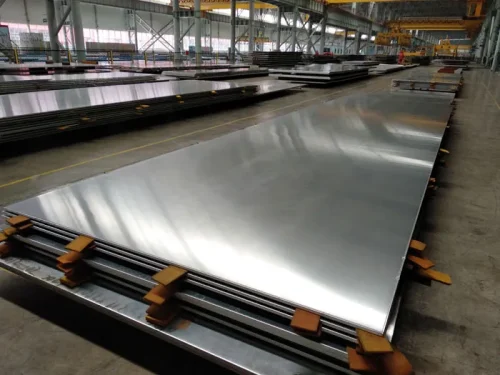
5083 aluminum alloy: The main components of 5083 are aluminum, magnesium and a small amount of chromium. It has excellent corrosion resistance, high strength and good welding performance. It is the most suitable aluminum alloy for salt water and the most suitable aluminum plate for ships. It is an ideal choice for manufacturing ship bottom plates, bottom beams, decks, hatch covers, deflectors, fuel tanks and other offshore structures.
6061 aluminum alloy: 6061 aluminum is a wrought aluminum alloys (wrought aluminum alloys is an aluminum alloy that changes its structure and shape through processes such as stamping, bending, rolling, extrusion.), and is also a marine grade aluminum alloy. It has good corrosion resistance and weldability, and can be used to manufacture hull structures, decks, ship accessories, etc., and can provide good structural strength and durability.
Why Can Aluminum Be Used Near Water
Aluminum may not be the best for continuous submersion, but it is a popular material for boats, docks, pontoons, job site furniture and ladders because it is both light and strong. When raw aluminum is exposed to air and water (rather than being constantly immersed in water), the aluminum oxide that forms on the surface prevents further corrosion. Ordinary 3000 series aluminum alloys will oxidize rapidly in marine environments. If you are purchasing aluminum items for use in or around the water, make sure you are purchasing marine grade aluminum, whether it is the aluminum 5000 series or some of the manufacturers’ aluminum 6000 series alloy products. With care and maintenance, these grades provide a long service life for aluminum objects near water.
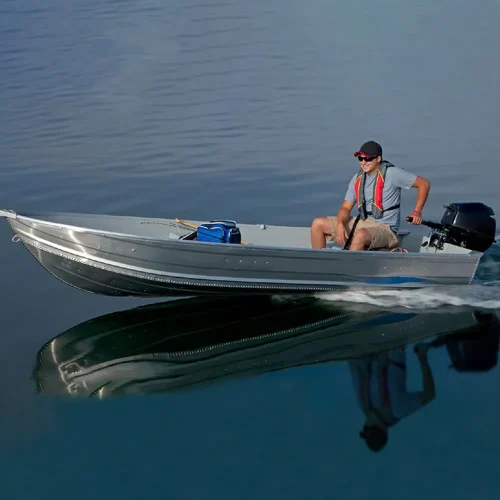
Selection Principles for Aluminum Marine
Aluminum marine is one of the emerging fields of aluminum alloy products, and it is also a key direction for the transformation and upgrading of many aluminum processing companies. Since aluminium marine is used in marine vessels and other fields, it has stricter process requirements and performance standards than other ordinary aluminum alloy products. It can be mainly divided into four aspects:
- High specific strength and specific modulus: The structural strength and size of the ship are closely related to the yield strength and elastic modulus of the material. Since the elastic modulus and density of aluminum alloys are roughly the same, the addition of alloy elements has little effect, so in Increasing the yield strength within a certain range is effective in lightening the ship structure. It is often difficult for high-strength aluminum alloys to have both excellent corrosion resistance and weldability. Therefore, aluminum marine alloys are generally medium-strength, corrosion-resistant and weldable alloys.
- Excellent welding performance: At present, automatic argon arc welding method is mainly used in ships. Good weldability means that the tendency of aluminum alloy to form cracks during welding is smaller, which means that aluminum alloy must have good welding crack resistance. . Because the lost welding performance cannot be restored by heat treatment again under shipbuilding conditions.
- Excellent corrosion resistance: Ship structures are used in somewhat harsh seawater media and marine environments. Therefore, corrosion resistance is one of the main signs of aluminum sheet for boat.
- Good cold and hot forming properties: Because ship manufacturing requires a variety of cold processing and hot processing, aluminum for marine use must be easy to process and form, without crack defects, and still meet the strength and corrosion resistance requirements after processing.
Other Materials vs Aluminum
Steel:
Marine sheet aluminum offers significant advantages over steel in terms of weight reduction, corrosion resistance and ease of fabrication. Steel requires specialized anti-corrosion methods such as coatings and sacrificial anodes, while the inherent corrosion resistance of marine sheet aluminum reduces the need for extensive maintenance. Additionally, aluminum’s lighter weight helps improve fuel efficiency and ship performance.
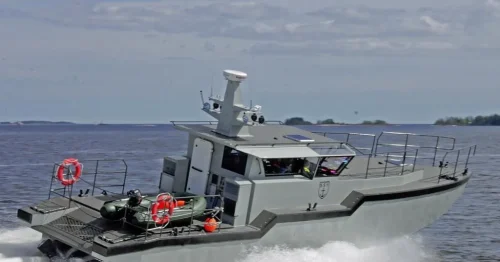
Glass Fiber:
Fiberglass is another common material utilized in marine applications. While fiberglass boats are less expensive and resistant to some types of corrosion, marine-grade aluminum boats have superior strength, durability, and impact resistance. Aluminum is also less difficult to repair than fiberglass, which may necessitate the use of specialist procedures to fix the damage.
Wood:
Traditional wooden boat construction has historical significance, but marine-grade aluminum is popular for its modern advantages. Aluminum offers better durability, lower maintenance requirements and greater design flexibility than wood. Aluminum boats also eliminate concerns associated with rot, splintering and insect infestation that are common with wooden structures.
Stainless Steel:
In normal atmosphere, the corrosion resistance of stainless steel is better than that of aluminum alloy. For the same volume, marine grade aluminum alloy weighs less. Although the strength of the two is similar, the hardness of stainless steel is higher than that of aluminum alloy. On the contrary, the plasticity of aluminum alloy will be better than that of stainless steel. In terms of high temperature resistance, the melting point of stainless steel ranges from 1200°C to 1500°C, and the melting point of aluminum alloy ranges from 500°C to 800°C. Stainless steel has better high temperature resistance. The appearance of the two is also different. Stainless steel is bright in color, while aluminum alloy is dull. Stainless steel has weak magnetism, while aluminum alloy is non-magnetic.
In addition, in terms of price, compared with the price of 6061 aluminum alloy, the price of normally used 304 stainless steel is not much different under the same weight. However, due to the high density of stainless steel, the price is higher than that of aluminum alloy under the same volume.
Marine Grade Aluminum Alloy Sheet Price
Many customers want to know the calculation of the aluminum sheet price and the manufacturer’s quotation. They don’t know what kind of aluminum sheet price is a reasonable price. It can be concluded from the sheet price calculation formula that the price of aluminum sheet is affected by many factors, such as the price of aluminum ingots on the day, surface painting, veneer thickness, logistics costs, labor costs and other factors. The so-called aluminum sheet quotation is relatively flexible. Since the thickness, specifications, spraying and other prices are fixed, only the price of the aluminum ingot on the day, the logistics price and the cost price of the processing difficulty have a greater impact. Let’s take a look at the daily aluminum ingot price transaction data commonly used by our factory:
Today’s aluminum price of Yangtze Nonferrous Ferrous
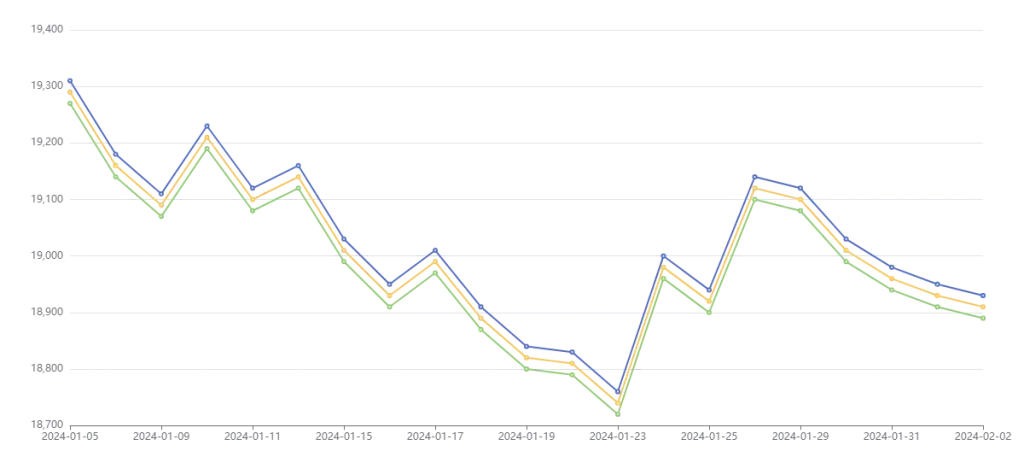
| Today’s aluminum price 2024-02-03 | |||||
| Market | Price Range | Average Price | Average price for the first three days | Average price for the first five days | Average price this week |
| Changjiang Nonferrous | 18890-18930 | 18910 | 18966.67 | 19024 | 18982 |
| Shanghai spot | 18880-18920 | 18900 | 18926.67 | 18970 | 18970 |
| Nanhai Lingtong | 19140-19240 | 19190 | 19220 | 19268 | 19310 |
FAQ
Is 6063 Aluminum Marine Grade?
No, 6063 aluminum alloy is not one of the aluminum marine grade alloys widely utilized in the manufacture of aluminum boats. Because of its low strength, it is mostly utilized in construction and some non-structural applications such as door and window frames, pipelines, profiles, and so on.
What Is The Best Aluminum For Saltwater Boats?
The 5083 aluminum alloy is widely considered as one of the best materials for ships working in saltwater environments. 5083 aluminum has high strength, high corrosion resistance, and resistance to seawater corrosion and oxidation. Other alloys that can be used in shipbuilding in saltwater environments are 5086 aluminum alloy and 5456 aluminum alloy.
Does Marine Grade Mean Waterproof ?
“Marine grade” usually refers to products or materials that have good performance and durability in the marine environment. They are usually specially designed and manufactured to cope with the requirements of marine environments such as saltwater corrosion and high wind and waves. However, just having a marine grade logo does not mean it is absolutely waterproof.

